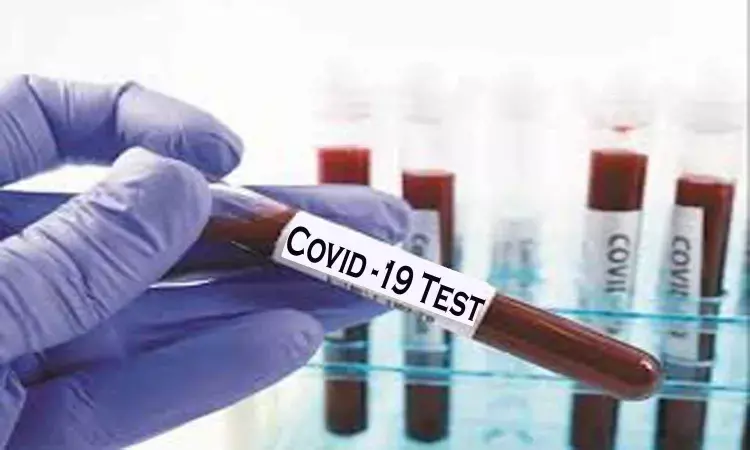- Home
- Medical news & Guidelines
- Anesthesiology
- Cardiology and CTVS
- Critical Care
- Dentistry
- Dermatology
- Diabetes and Endocrinology
- ENT
- Gastroenterology
- Medicine
- Nephrology
- Neurology
- Obstretics-Gynaecology
- Oncology
- Ophthalmology
- Orthopaedics
- Pediatrics-Neonatology
- Psychiatry
- Pulmonology
- Radiology
- Surgery
- Urology
- Laboratory Medicine
- Diet
- Nursing
- Paramedical
- Physiotherapy
- Health news
- Fact Check
- Bone Health Fact Check
- Brain Health Fact Check
- Cancer Related Fact Check
- Child Care Fact Check
- Dental and oral health fact check
- Diabetes and metabolic health fact check
- Diet and Nutrition Fact Check
- Eye and ENT Care Fact Check
- Fitness fact check
- Gut health fact check
- Heart health fact check
- Kidney health fact check
- Medical education fact check
- Men's health fact check
- Respiratory fact check
- Skin and hair care fact check
- Vaccine and Immunization fact check
- Women's health fact check
- AYUSH
- State News
- Andaman and Nicobar Islands
- Andhra Pradesh
- Arunachal Pradesh
- Assam
- Bihar
- Chandigarh
- Chattisgarh
- Dadra and Nagar Haveli
- Daman and Diu
- Delhi
- Goa
- Gujarat
- Haryana
- Himachal Pradesh
- Jammu & Kashmir
- Jharkhand
- Karnataka
- Kerala
- Ladakh
- Lakshadweep
- Madhya Pradesh
- Maharashtra
- Manipur
- Meghalaya
- Mizoram
- Nagaland
- Odisha
- Puducherry
- Punjab
- Rajasthan
- Sikkim
- Tamil Nadu
- Telangana
- Tripura
- Uttar Pradesh
- Uttrakhand
- West Bengal
- Medical Education
- Industry
Tata venture into medical diagnostics gets DCGI nod for low-cost Covid-19 test Feluda

Tata CRISPR: The Tata CRISPR (Clustered Regularly Interspaced Short Palindromic Repeats) test, powered by CSIR-IGIB(Institute of Genomics and Integrative Biology) FELUDA, received regulatory approvals today from the Drug Controller General of India (DCGI) for commercial launch, as per ICMR guidelines, meeting high-quality benchmarks with 96% sensitivity and 98% specificity for detecting the novel coronavirus. This test uses an indigenously developed, cutting-edge CRISPR technology for the detection of the genomic sequence of the SARS-CoV-2 virus.CRISPR is a genome-editing technology to diagnosing diseases.
The Tata CRISPR test is the world's first diagnostic test to deploy a specially adapted Cas9 protein to successfully detect the virus causing Covid-19. This marks a significant achievement for the Indian scientific community, moving from R&D to a high-accuracy, scalable, and reliable test in less than 100 days. The Tata CRISPR test achieves accuracy levels of traditional RT-PCR tests, with quicker turnaround time, less expensive equipment, and better ease of use. Moreover, CRISPR is a futuristic technology that can also be configured for the detection of multiple other pathogens in the future.
The effort is the result of a fruitful collaboration between the scientific community and industry. The Tata Group has worked closely with CSIR-IGIB and ICMR to create a high-quality test that will help the nation ramp up Covid-19 testing quickly and economically, with a 'Made in India' product that is safe, reliable, affordable, and accessible.
Commenting on the development, Girish Krishnamurthy, CEO, TATA Medical and Diagnostics Ltd, said, "The approval for the Tata CRISPR test for COVID-19 will give a boost to the country's efforts in fighting the global pandemic. The commercialization of the Tata CRISPR test reflects the tremendous R&D talent in the country, which can collaborate to transform India's contributions to the global healthcare and scientific research world."
Also Read: Merck bags US Patents for Foundational CRISPR-Cas9 Technology
Dr. Shekhar C Mande, DG-CSIR complimented the CSIR-IGIB team of scientists and students, TATA Sons and DCGI for the exemplary work and collaboration carried out during the current pandemic leading to the approval of the novel diagnostic kit and paving the path for further innovations towards making India self-reliant.
Dr. Anurag Agrawal, Director CSIR-IGIB expressed delight that work started by CSIR under the sickle cell mission for genome diagnostics and therapeutics led to new knowledge that could be harnessed to quickly develop a new diagnostic test for SARS-CoV-2. He emphasized that this shows the interconnectedness of scientific knowledge and technology and the innovation of the young research team led by Dr. Debojyoti Chakraborty and Dr. SouvikMaiti.


